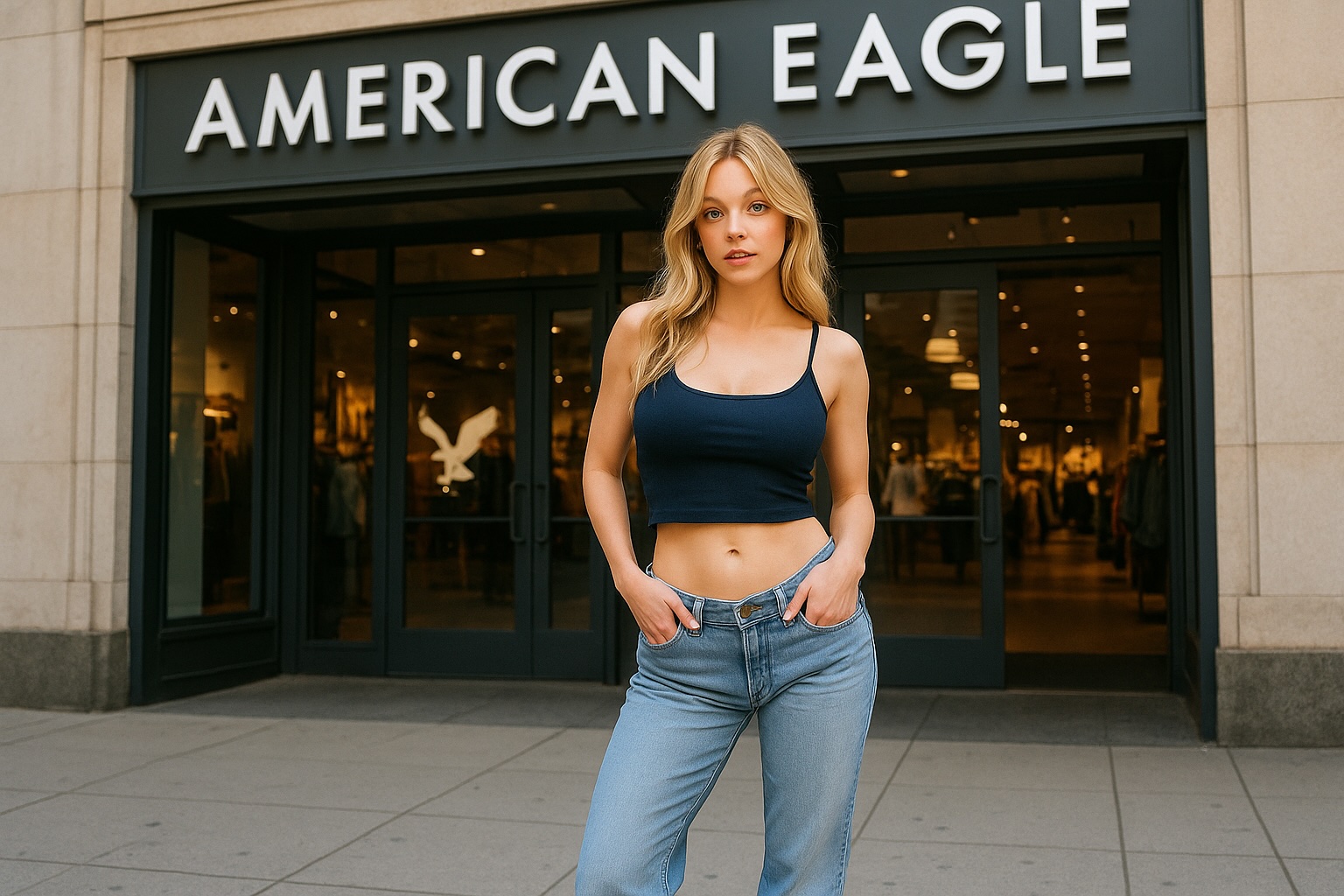American Eagle Says Vast Majority Likes Controversial Sydney Sweeney Jeans Ad
American Eagle's new denim campaign starring Sydney Sweeney has ignited a firestorm of online debate, with critics calling it an overly sexualized departure from the brand's image. In a bold move, the company is pushing back, claiming internal data shows the "vast majority" of its audience loves the ad, sparking a conversation about brand identity and the power of public perception.

This week, mall staple American Eagle launched its much-anticipated "Real You" fall denim campaign, fronted by one of Hollywood's most ubiquitous and talked-about stars, Sydney Sweeney. But what was likely intended to be a viral moment has become just that—for all the wrong reasons.
The campaign has ignited a firestorm of online debate, with critics and longtime customers slamming the visuals as a regressive, overly sexualized departure for the brand. In a move that has only added fuel to the fire, American Eagle has doubled down, releasing a statement claiming an internal poll shows a "vast majority" of their audience loves the new direction. The result is a fascinating clash between public discourse and corporate data, leaving many to ask: who is the American Eagle customer in 2025?
The Ad at the Center of the Storm
The controversy isn't about the jeans themselves, but their presentation. The campaign, shot by a high-fashion photographer, features Sweeney in a series of moody, low-lit vignettes that feel miles away from the bright, sunny aesthetic American Eagle is known for.
In one key image circulating online, Sweeney poses in a dimly lit auto garage, leaning over the hood of a classic car, with the camera focused tightly on the fit of the low-rise jeans. Another video short shows slow-motion shots of her walking away down a deserted street at night, set to a breathy, atmospheric soundtrack.
Critics on TikTok and X (formerly Twitter) were swift to point out the dissonance. "Is this an ad for jeans or a teaser for the next season of Euphoria?" one popular comment reads. Many argue the campaign leans heavily on the "male gaze," sexualizing Sweeney's body rather than celebrating the product or the person wearing it. After years of progress toward body positivity and more diverse representation in mainstream fashion, longtime fans are calling the campaign a disappointing regression to early-2000s marketing tropes.
American Eagle's Defense: "The Data Doesn't Lie"
As the backlash grew, the company didn't apologize or pull the ads. Instead, they pushed back. In a press release issued late Thursday evening, a spokesperson for the brand stated:
"The 'Real You' campaign is about confidence, and Sydney Sweeney embodies that spirit. While online discourse can be loud, our internal polling and initial sales data show a vastly positive reception from our core audience. They connect with Sydney's confidence, and they love the jeans. The numbers speak for themselves."
This "data over discourse" strategy is a bold one. American Eagle is essentially claiming the online critics are a vocal minority, and that the "silent majority" of their actual customers are not only unbothered but are actively responding with their wallets. It's a classic PR move that attempts to invalidate public criticism by framing it as unrepresentative noise.
A Brand in Transition?
The controversy raises bigger questions about American Eagle's place in the 2025 fashion landscape. Is this a calculated risk to "edge up" the brand and shed its wholesome, girl-next-door image? Or is it a misstep that reveals a disconnect with a customer base that has grown up and now expects more from the brands they support?
Hiring Sydney Sweeney, an actress whose public image is inextricably linked with bold, often sexualized roles, was a deliberate choice. It's unlikely the brand was unaware of the conversation her presence would generate. The "Real You" campaign title, then, becomes ironic. Is the "real" American Eagle a brand of accessible, comfortable basics, or is it now vying for the attention of a customer base more aligned with the provocative aesthetics of fast fashion and luxury brands?
The standoff is a fascinating case study. American Eagle is betting that a controversial ad that gets everyone talking—even negatively—is more valuable than a safe ad that no one notices. Whether that gamble pays off in brand loyalty, or simply short-term sales, remains to be seen. The real question isn't whether people like the ad, but what it signals about who American Eagle thinks its customers are, and who it wants them to be.
